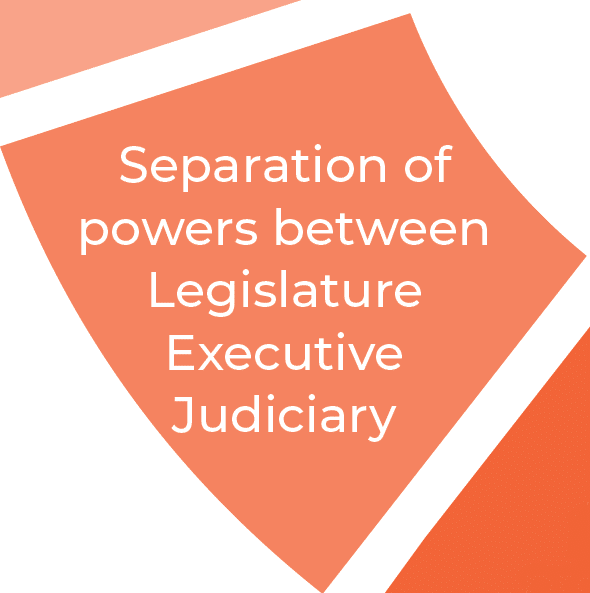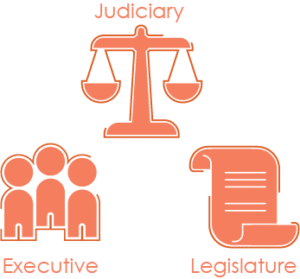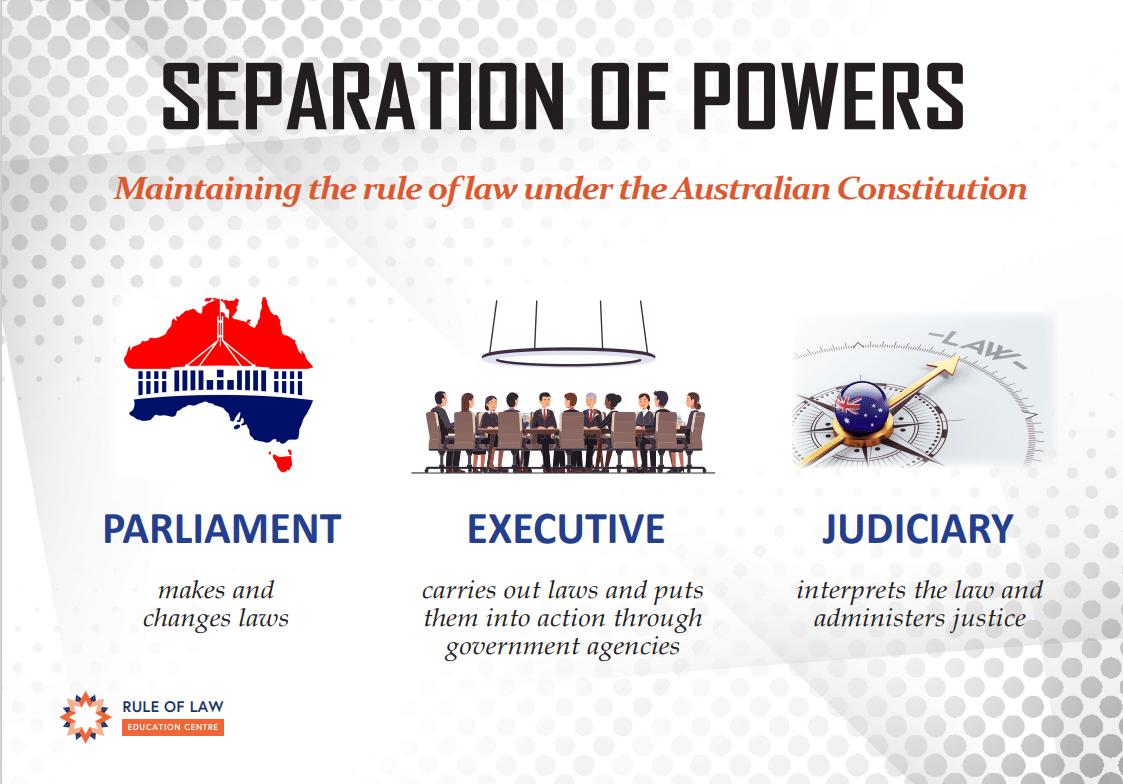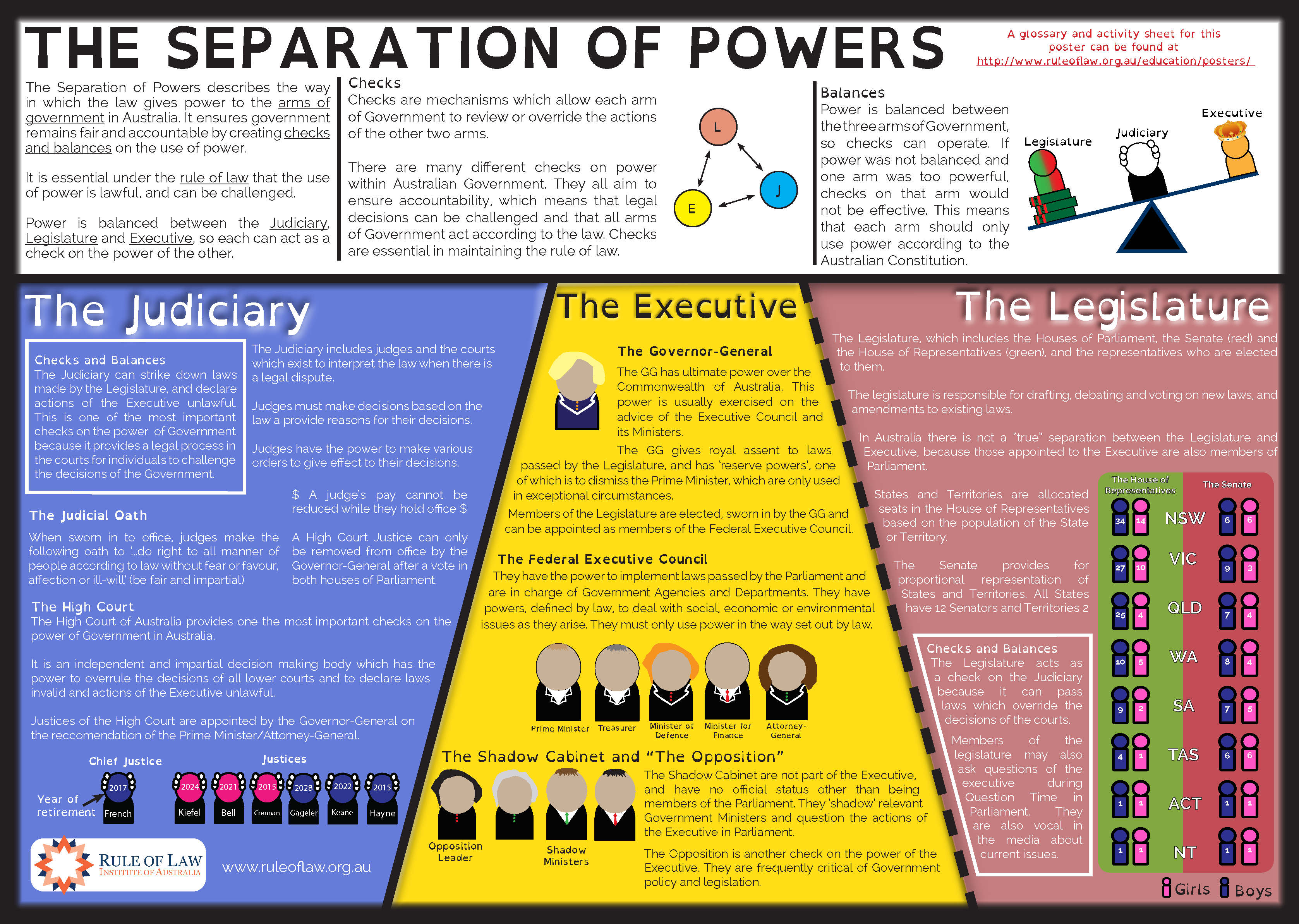Separation of Powers
Under the rule of law, people are ruled by the law and not by individuals. Checks and balances via the separation of powers are critical to ensure the spread the power between those who make the law, those who enforce/implement the law and those who resolve disputes about the law.
The separation of powers is a concept that requires that the arms of government act as checks on each other’s power. It also requires that power is balanced between the arms of government, so no one person or body of people becomes too powerful.

The separation of powers is a concept that stems back to French political thinker, Montesquieu in 1748, who believed that the concentration of power in any single person or group of people as a threat to liberty. He said:
Constant experience shows us that every man invested with power is apt to abuse it, and to carry his authority as far as it will go….To prevent this abuse, it is necessary from the very nature of things that power should be a check to power….When the legislative and executive powers are united in the same person, or in the same body of magistrates, there can be no liberty; because apprehensions may arise, lest the same monarch or senate should enact tyrannical laws, to execute them in a tyrannical manner.
The Australian Constitution divides power between three branches of government referred to as the separation of powers.
Chapters I to III of the Constitution outlines the legislative, executive and judicial powers of the Commonwealth as the three separate branches of government.
a. Legislature (Parliament) has the power to make and change laws. Parliament is made up of representatives who are elected by the people of Australia
b. Executive has the power to enact law and administer the business of government through government departments, statutory authorities and the defence forces. The Executive includes Australian government ministers and the Governor-General.
c. Judiciary has the power to interpret law and conclusively determine legal disputes. Courts and judges are independent of parliament and government. The role of the High Court as the ultimate independent and impartial arbiter of judicial review
Each arm of government must be open and operate in accords with the law. Accountability and transparency are required of government agencies, especially those with coercive powers, to ensure that they act according to the law and not beyond it. With power comes great responsibility, and the need for ongoing review of such power is essential. This draws in other rule of law principles such as:
Further resources on Separation of Powers
- Check and Balances Explainer
- Australian Constitution Explainer
- Simple Explainers on Democracy and Government (including student activities)
- Separation of Powers Posters



